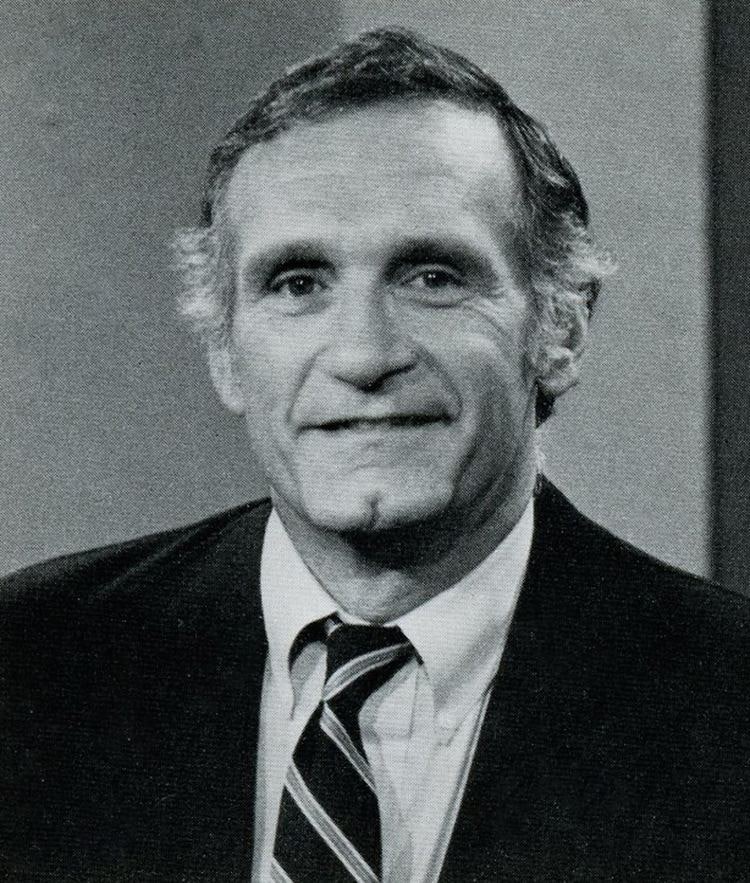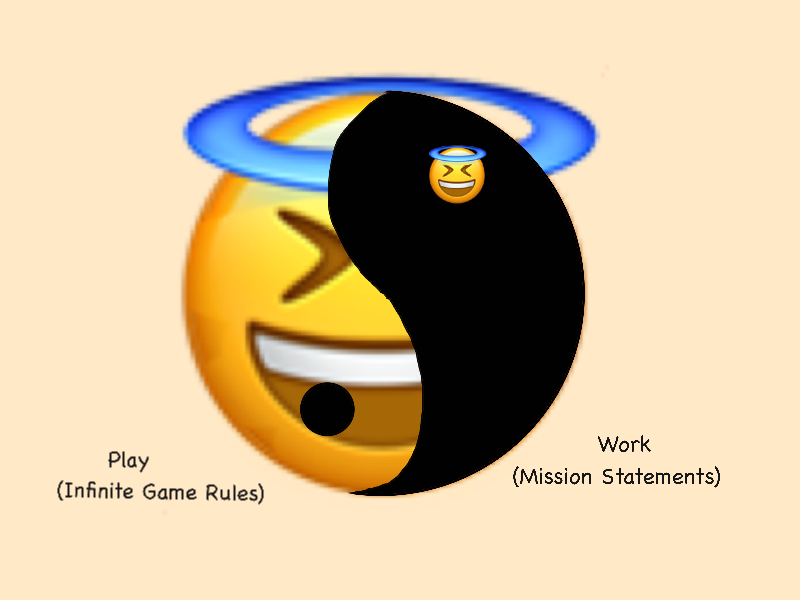The philosopher and theologian James Carse, author of the sublime Finite and Infinite Games, sadly passed away on September 29. It is an adjective I rarely use, but this is one of the rare books that deserves it. It also happens to be deeply relevant to the gig economy.
(James Carse. image credit: Simon and Schuster)
I was fortunate to be invited to a Zoom salon with Carse hosted by a friend just a few weeks before he passed away, so I got to hear his own thoughts on his life work and legacy at the end of it. The most interesting thing I learned at the salon was that he was actually something of a jock in his youth, a football player. His philosophy of games was rooted in actual games.
Gigs and Games
Carse was best known for a simple but powerful idea that is of deep relevance to the gig economy, best articulated by the opening lines of his book:
There are at least two kinds of games. One could be called finite; the other infinite. A finite game is played for the purpose of winning, an infinite game for the purpose of continuing the play.
Why is Carse relevant to the gig economy? For a simple reason:
Gigification is gamification. At its worst, it is finite gamification, and at its best, it is infinite gamification.
A lot of what I attempt to do in this newsletter could be described as trying to think about, uncover, and share the essence of this infinite-game aspect of the indie life. And help shift the balance in our lives as gig-workers away from finite play and towards infinite play.
So much of what is written about the gig economy focuses on the dark underbelly that it can sometimes be hard to see that there is in fact a positive, deeply playful side. Carse’s core idea helps us see the gig economy in a balanced way.
-
The finite game aspect of the gig economy correlates to the under-the-API side of it. The world of algorithmically coordinated games, and very clear and literal game-like rules administered by apps that encourage you to “play to win” in a way that traps you.
-
The infinite game aspect correlates to the above-the-API side. The world of self-defined work, autonomy, free agency, and stimulating variety. A world where you get to both shape the rules, and decide how to play in a way that frees you.
It is important to note that the finite/infinite aspect is not a feature of the game, but a feature of the attitude of the player. You know you are free when you are motivation is infinite-game-like: you’re playing to continue the play. Finitude or infinitude is primarily in your attitude, and only secondarily in the structure of the game.
So in principle, it is possible to play under-the-API games with an infinite-game mindset. It’s just harder. And of course it is possible to play finite games above the API.
On the paycheck side of the economy, it is overall harder to be an infinite-game player, but again, it is more about attitude than situation. There are definitely infinite-game mindset people in both the paycheck and gig economies, but I suspect there’s more of us on the gig-side.
Mercenaries and Games
Yesterday, I asked a question on Twitter that was partly a joke, partly a troll, and partly serious: if missionaries believe in mission statements, what do mercenaries believe in?
To my surprise, while there were some fun answers, nobody offered an answer that pointed directly at play, which is what I was hoping for.
Indirectly though, by pointing to the “game pieces” of business life — contracts, invoices, annual reports, book-keeping — people did sort of go where I was hoping they would. While the answers were clearly meant as pragmatic, perhaps even cynical alternatives to smarmy mission statements, they do reveal a lively spirit of gamesmanship (in a positive sense of what is generally a negative term) at the core of the gig economy.
Unlike many in the paycheck economy, we are deeply aware of the game-like elements because we have to be, and we possess perhaps a better literacy around them on average, because we are forced to. Forgetting that we’re in a game — what is sometimes called ludic immersion — is harder for us. But as a result, we are better at actually playing and enjoying the game. We see the game. We value the game. We don’t feel trapped by it. Paycheck employees on the other hand, often can’t see the game, don’t value it, feel trapped by it, and fantasize about quitting it for good (the “fuck you money” dream is a primarily a paycheck employee dream).
It says a lot about the negative valence that attaches to the word mercenary today that it is so hard to directly see the positive element of play at the heart of it.
As you’ll know if you’ve been following my writing this year, reclaiming the word mercenary with a positive valence is one of the things I try to do here (see The Way of the Mercenary from June 11 and Messengers of the Medium from October 1).
Here is my own answer to the question, which you may or may not agree with. Since, at its best, the gig economy is about infinite gamification, the mercenary equivalent of the mission statement is game rules.
I made up a yin-yang symbol to represent this.
Why game rules?
Mission statements (and their doctrinal cousins, manifestos) are serious things. The talk about values and future utopian states of the world. The very term missionary suggests a solemn — perhaps joyless — attitude towards work. Mission statements center seriousness. They are born of a sense of duty and scarcity.
Game rules, on the other hand, are about catalyzing play. It is about constraints you impose on your own sense of freedom to make your life more interesting. Game rules center fun. They are born of a sense of agency and abundance.
Good game rules make you want to keep playing and stay in an indefinitely perpetuated state of play until you run out of energy. Bad game rules hook your worst instincts and drive you to win, once and for all, regardless of what it does to other players, and arrive at a permanent win condition and never leave.
Again, there are no necessary structure-behavior links here, but something of a default tendency or bias.
-
It is possible — but harder — for a company (and its paycheck employees) to be game-rules oriented.
-
It is possible — but harder — for an independent consultant to be mission-statement oriented.
Companies are naturally constructs designed to catalyze seriousness rather than play, which arguably is why the work-versus-play dichotomy emerged in the first place. I suspect it was much weaker in the pre-industrial world. In the pre-industrial agrarian world, work and play blended in interesting ways, through religion, country fairs, harvest festivals, and the like. Industrial work separated the two. The gig economy is trying to put the two back together in a more powerful way.
The Play Instinct
One of the things I try not to do in this newsletter is to reinforce the bad us-versus-them idea that the gig economy is somehow morally superior to the paycheck economy. It is not. Each side needs the other side to exist.
But there is an asymmetric belief I’ll cop to holding: the gig economy is a more evolved way of working. The gig economy is as far beyond the industrial paycheck economy as the paycheck economy is beyond the agrarian economy.
This has nothing to do with moral superiority. Gigworkers are no more superior to paycheck workers than paycheck workers are to farmers. The evolutionary leap has to do with technology. The gig economy uses technology to organize work in much more sophisticated and fluid ways. That’s why it is more evolved.
My buddy Seb Paquet came up with an eloquent snowclone of Clarke’s Law to capture this idea:
Sufficiently advanced work is indistinguishable from play.
This is why it is easier to be in infinite game mode in the gig economy than in the paycheck economy. This is why it is even easier in the above-the-API part of it. It’s about more advanced technological modes.
But enabling technologies are neither necessary, nor sufficient. The nearly necessary, and almost sufficient condition is that you possess what I call the play instinct — the ability to see and approach almost anything as a game, preferably an infinite one.
This is where Carse’s life play comes into the picture. It is a book that can help you develop the play instinct by helping you ask and answer an obvious question about games: why do we play?
That question is surprisingly rarely asked, and even more rarely answered. It is as fundamental as why do we work?
A very rich understanding of what games are, and how to play them well, can be found in many places:
-
Mathematical game theory
-
Practical views of games in gaming industries
-
Sports subcultures
-
Huizenga’s excellent sociological theory of societies as games in Homo Ludens
-
Anthropological understandings as in Clifford Geertz’ famous article on “Deep Play” in Balinese cockfighting.
-
Hermann Hesse’s thought-provoking satire of gamified understandings of the human condition in The Glass Bead Game.
I recommend exploring all of these if you’re serious about a long-term career in the gig economy. But direct treatments of the question of why we play games are vanishingly rare. Especially ones that point to such simple, but powerful answers as either to win, or to continue to play.
Besides Carse’s book, I can only think of one other work that directly addresses the question — David Graeber’s 2014 essay in The Baffler, What’s the Point if We Can’t Have Fun? (Graeber too passed away last month, on September 2 — and though I’m critical of his main body of work on debt and anarcho-socialist politics, there is no doubt that he too was a seminal thinker for our times).
Developing an infinite-player mindset is crucial to surviving and thriving long-term in the world of work. It is important in the paycheck economy, but doubly so in the gig economy, where it is almost a make/break condition of a worthwhile existence.
There’s many ways to do it. You can experiment with your own gig-rules-making. You can become a contracts nerd. You can master your medium. You can explore the literature on games. You can actually play formalized games. You can design your own games. You can write consulting fiction like I sometimes do here.
But do it you must. Because the only way you can make the gig economy work for you is to learn how to play in it.
And there’s no better place to start than with James Carse.


